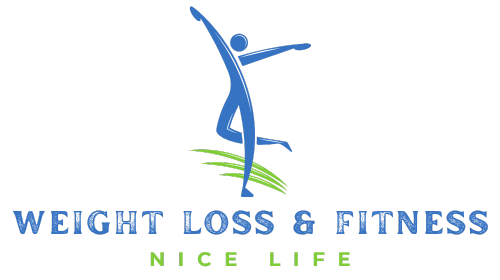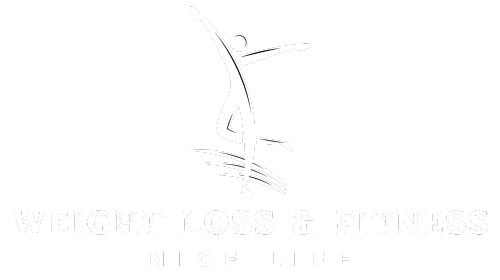Maintaining a healthy weight has become a paramount concern for many individuals, especially women.
The quest for effective weight loss strategies has brought to light the significant role that women’s vitamins for weight loss play in shaping successful journeys towards a healthier lifestyle.
The concept of weight loss isn’t just about aesthetics; it’s about promoting better health, preventing chronic diseases, and boosting self-confidence.
As women navigate the complexities of their daily lives, the significance of finding effective and sustainable methods for weight management cannot be overstated.
The importance of maintaining a healthy weight goes beyond societal pressures or beauty standards.
It directly impacts various aspects of a woman’s life, including her physical health, mental well-being, and long-term quality of life.
Excess weight can lead to a range of health issues, such as cardiovascular diseases, type 2 diabetes, joint problems, and even certain types of cancer.
Moreover, maintaining a healthy weight positively influences energy levels, mobility, and overall vitality, allowing women to fully engage in their personal and professional pursuits.
Vitamins, essential micronutrients that the body requires in small quantities, play a critical role in supporting women’s weight loss goals.
While vitamins are not a direct substitute for exercise and a balanced diet, they can act as valuable catalysts in the weight loss journey.
Certain vitamins have been found to influence metabolic processes, regulate appetite, and contribute to the efficient functioning of bodily systems, all of which are vital components of effective weight management.
I. Essential Women’s Vitamins for Weight Loss

Vitamins are integral components of a well-rounded diet, and specific vitamins have been recognized for their potential role in supporting women’s weight loss efforts. Let’s explore the essential vitamins that play a key role in this context:
A. Vitamin D
1. Influence on Metabolism and Fat Storage
Vitamin D, often referred to as the “sunshine vitamin,” is renowned for its role in calcium absorption and bone health. However, it also has a significant impact on metabolism and fat storage.
Vitamin D receptors are present in adipose tissue and muscle cells, suggesting a direct influence on fat metabolism.
It’s thought that adequate vitamin D levels may help regulate insulin sensitivity, reducing the risk of insulin resistance and subsequent fat accumulation.
2. Potential Benefits for Weight Management
Research suggests that maintaining optimal vitamin D levels could be linked to a healthier body weight.
Some studies have shown a potential correlation between low vitamin D levels and higher body fat percentages.
While the exact mechanisms are still being investigated, ensuring sufficient vitamin D intake through sunlight exposure and dietary sources could contribute to overall weight management.
B. B Vitamins
1. B6, B12, and Folate’s Role in Energy Production
B vitamins, including B6, B12, and folate, are essential for energy production through their involvement in metabolic processes.
They play a crucial role in converting food into usable energy, which is essential for physical activity and exercise, both of which are key components of weight loss strategies.
2. Impact on Metabolism and Digestion
B vitamins are known to support metabolism and promote efficient digestion. Vitamin B6, for instance, is involved in breaking down glycogen (stored glucose) and releasing it as energy.
This has the potential to hinder the accumulation of excess glucose as body fat. Additionally, B vitamins are necessary for the synthesis of enzymes and hormones that regulate metabolism, ensuring that the body’s energy expenditure is optimized.
C. Vitamin C
1. Antioxidant Properties and Their Effect on Weight Loss
Vitamin C is renowned for its antioxidative qualities, aiding in shielding cells from harm induced by free radicals.
While not a direct fat-burning agent, vitamin C’s antioxidant function can support overall health during weight loss.
When the body is under stress from changes in diet and exercise, vitamin C’s protective role aids in maintaining cellular integrity and function.
2. Promotion of Healthy Tissue and Immune Function
Vitamin C is crucial for collagen synthesis, a protein that forms the basis of connective tissues such as skin, tendons, and ligaments.
As women engage in weight loss activities, maintaining healthy skin elasticity and muscle tissues can contribute to a more toned appearance.
Additionally, a strong immune system is essential to sustain the energy and vigor needed for consistent weight loss efforts.
D. Vitamin A
1. Regulation of Fat Storage and Appetite
Vitamin A is involved in regulating fat storage and appetite through its influence on a hormone called leptin.
Leptin plays a role in appetite control and the regulation of fat tissue. Adequate vitamin A levels help maintain healthy leptin levels, promoting a balanced appetite and potentially preventing overeating.
2. Support for Overall Metabolic Health
Vitamin A also contributes to healthy thyroid function, which plays a central role in metabolism regulation.
A well-functioning thyroid is essential for maintaining a healthy weight, as it controls the body’s basal metabolic rate—the energy expended while at rest.
II. How Vitamins Aid in Weight Loss

Women’s vitamins for weight loss play a multifaceted role in supporting weight loss efforts by influencing various physiological processes.
Their impact extends beyond simply providing essential nutrients; they can actively contribute to achieving weight loss goals through several mechanisms:
A. Metabolism Boost
1. Enhancing Energy Expenditure
Certain vitamins have been shown to enhance the body’s energy expenditure, which is the number of calories burned during daily activities and exercise.
Vitamin B-complex, for example, assists in converting carbohydrates, proteins, and fats from food into energy.
This efficient conversion process helps prevent excess calories from being stored as fat and promotes an optimal energy balance.
2. Optimizing Cellular Processes
Vitamins act as coenzymes, assisting in the proper functioning of enzymes that facilitate crucial biochemical reactions.
These reactions are essential for metabolizing nutrients and producing energy within cells. By supporting these processes, vitamins aid in maintaining a well-functioning metabolism that efficiently utilizes the calories consumed.
B. Appetite Regulation
1. Influence on Hunger and Cravings
Women’s vitamins for weight loss can indirectly influence appetite by participating in the regulation of hormones responsible for hunger and satiety.
Vitamin D, for instance, has been linked to the production of leptin, a hormone that signals fullness to the brain.
Adequate levels of vitamin D can help prevent overeating by promoting an appropriate response to hunger cues.
2. Impact on Portion Control and Dietary Choices
Vitamins can play a role in reducing cravings for unhealthy foods. For example, Vitamin C’s antioxidant properties help counteract oxidative stress, which can contribute to cravings for sugary and fatty foods.
By curbing these cravings, women can make better dietary choices, opting for nutrient-dense options that align with their weight loss goals.
C. Muscle Maintenance
1. Importance of Preserving Lean Muscle Mass
Maintaining lean muscle mass is crucial for effective weight loss. Muscle tissue burns more calories at rest than fat tissue, contributing to a higher basal metabolic rate.
Certain vitamins, like B-complex vitamins and vitamin D, support muscle function and help prevent muscle loss during weight loss efforts.
2. Vitamins’ Role in Muscle Recovery and Growth
Vitamins also play a part in muscle recovery and growth, which are essential aspects of an active lifestyle.
Vitamin E, for instance, is an antioxidant that helps reduce muscle inflammation and oxidative stress after exercise, supporting quicker recovery and allowing women to engage in consistent physical activity.
III. Dietary Sources of Vitamins for Women’s Weight Loss
A balanced and nutrient-rich diet is the cornerstone of effective weight loss and overall health. Essential women’s vitamins for weight loss can be readily obtained through a variety of natural food sources.
These sources offer a holistic approach to supplementation, ensuring that women receive not only the required vitamins but also other vital nutrients:
A. Natural Food Sources Rich in Essential Women’s Vitamins for Weight Loss
1. Sunlight Exposure for Vitamin D
One unique way to obtain vitamin D is through sunlight exposure. When ultraviolet B (UVB) rays from the sun interact with the skin, the body produces vitamin D.
Spending a reasonable amount of time outdoors, especially during sunny days, can help maintain adequate vitamin D levels.
2. Lean Meats, Dairy, and Legumes for B Vitamins
B vitamins are commonly found in lean meats such as poultry and fish, as well as dairy products like milk, yogurt, and cheese.
For individuals following plant-based diets, legumes (such as lentils and beans) are excellent sources of B vitamins, particularly vitamin B6 and folate.
3. Fruits and Vegetables for Vitamin C and A
Fruits and vegetables are abundant sources of both vitamin C and vitamin A. Citrus fruits (oranges, strawberries, kiwi) are renowned for their high vitamin C content.
Leafy greens, carrots, sweet potatoes, and bell peppers are rich in vitamin A, contributing to healthy skin, vision, and metabolism.
B. Consideration of Dietary Restrictions or Preferences
1. Vegetarian or Vegan Diets
Women following vegetarian or vegan diets can still obtain essential women’s vitamins for weight loss through plant-based sources.
To ensure sufficient vitamin D intake, they might consider fortified plant-based milk, cereals, and exposure to sunlight.
For B vitamins, incorporating fortified foods, whole grains, legumes, nuts, and seeds can provide the necessary nutrients.
Including a variety of fruits and vegetables in daily meals will contribute to vitamin C and A intake.
2. Allergies or Sensitivities
Individuals with allergies or sensitivities should identify alternative sources of vitamins that suit their dietary needs.
For instance, if dairy is a concern, they can opt for fortified non-dairy milk products. People with specific food allergies can explore vitamin-rich alternatives that do not trigger adverse reactions.
IV. Potential Risks and Considerations
Embarking on a journey towards weight loss with the support of vitamins requires careful consideration and informed decision-making.
While women’s vitamins for weight loss are crucial for overall health, it’s important to approach their intake with caution to ensure safety and effectiveness:
A. Importance of Balanced Vitamin Intake
While vitamins play a pivotal role in weight loss and overall well-being, it’s essential to maintain a balanced intake.
Excessive consumption of certain vitamins can lead to adverse effects, disrupting the body’s delicate equilibrium.
Strive for a varied diet that naturally provides the required vitamins, rather than solely relying on supplements.
B. Avoiding Excessive Supplementation
Supplements should be considered as complements to a healthy diet rather than replacements for whole foods.
Overreliance on supplements can lead to “mega-dosing,” where excessive amounts of certain vitamins accumulate in the body.
This can lead to health issues, ranging from digestive discomfort to more serious concerns like vitamin toxicity.
C. Consulting a Healthcare Professional Before Making Changes
Before incorporating new supplements or making drastic dietary changes, it’s crucial to consult a healthcare professional, such as a registered dietitian or a doctor.
These experts can assess your individual health needs, identify potential deficiencies, and recommend appropriate strategies for supplementation based on your specific circumstances.
D. Monitoring for Any Adverse Effects or Interactions
As you begin incorporating vitamins into your weight loss regimen, pay attention to any changes in your body’s response.
While women’s vitamins for weight loss can have numerous benefits, they can also interact with medications or other supplements, leading to adverse effects.
If you experience unexpected symptoms or side effects, consult your healthcare provider promptly.
V. Lifestyle Factors in Conjunction with Vitamin Intake
A comprehensive approach to weight loss involves more than just vitamin supplementation; it encompasses various lifestyle factors that, when combined with vitamins, can lead to successful and sustainable results.
Integrating these factors ensures a holistic approach to weight management and overall well-being:
A. Regular Physical Activity’s Role in Weight Loss
Women’s vitamins for weight loss are not standalone solutions for losing weight; they synergize with regular physical activity.
Exercise helps burn calories, improve metabolic rate, and maintain lean muscle mass. When combined with essential vitamins, physical activity optimizes the body’s ability to utilize nutrients efficiently, leading to better weight loss outcomes.
B. Balanced Diet Rich in Nutrients and Fiber
Pairing vitamins with a well-balanced diet is essential for effective weight loss. Nutrient-dense foods provide vitamins along with other crucial nutrients, supporting the body’s functions.
Fiber-rich foods, in particular, contribute to satiety and digestion, helping women feel full and satisfied, making it easier to manage portions and control calorie intake.
C. Hydration and Its Impact on Metabolism
Staying adequately hydrated is often overlooked but is a crucial aspect of weight loss. Proper hydration supports metabolic processes, aiding in the breakdown of nutrients and energy utilization.
Water also assists in appetite control, helping women distinguish between genuine hunger and thirst cues, which can prevent overeating.
D. Sleep Quality and Its Connection to Weight Management
High-quality sleep significantly contributes to effective weight management. Insufficient sleep can disturb the hormones responsible for appetite regulation, resulting in heightened urges for unhealthy foods.
Adequate sleep supports cognitive function, emotional well-being, and the body’s ability to recover from exercise, enhancing overall weight loss efforts.
VI. Conclusion
In the pursuit of weight loss and improved health, the role of women’s vitamins for weight loss cannot be underestimated.
These essential micronutrients play a crucial part in supporting various aspects of the weight loss journey.
However, a successful and sustainable approach to weight management extends beyond vitamin supplementation alone.
A. Recap of the Importance of Women’s Vitamins in Weight Loss
Vitamins, such as vitamin D, B vitamins, vitamin C, and vitamin A, contribute to metabolism optimization, appetite regulation, and muscle maintenance.
They assist in energy production, support cellular processes, and influence hormonal responses that affect weight loss outcomes.
Understanding the impact of these vitamins empowers women to make informed dietary choices that align with their goals.
B. Emphasis on a Holistic Approach to Weight Management
While vitamins are valuable tools, they are most effective when integrated into a comprehensive lifestyle approach.
A balanced diet, regular physical activity, proper hydration, and sufficient sleep form the foundation of a holistic weight management strategy.
These elements work in harmony to create an environment conducive to sustained weight loss and improved well-being.
C. Encouragement for Individuals to Make Informed Decisions with Professional Guidance
As women embark on their weight loss journeys, seeking guidance from healthcare professionals, such as registered dietitians and doctors, is essential.
These experts can offer personalized recommendations based on individual health needs, dietary preferences, and any underlying medical conditions.
Collaboration with professionals ensures that women make safe and effective choices that align with their unique circumstances.
Women’s vitamins play a vital role in supporting weight loss goals, but they are just one piece of the puzzle.
By combining the benefits of essential vitamins with a holistic lifestyle approach, women can create a sustainable path to weight management success.
With dedication, balanced choices, and informed decisions, every woman has the potential to achieve her weight loss goals while prioritizing her health and well-being.













No Comments